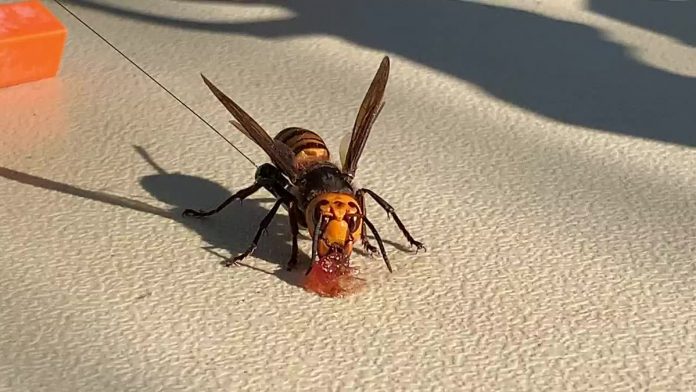Ever since it was confirmed by wildlife officials and scientists that the Asian Giant Hornets — known as “Murder Hornets” because they’re, well, pretty dangerous — were present in the United States, there’s been a great concern for the fate of native honeybees. Honeybees are a prime target for the hornets, which invade hives and kill off the bees swiftly.
Now, beekeepers and scientists have discovered that some honeybees appear to have developed their own natural defense against the pesky invaders, at least in Vietnam. Incredibly, it seems that some bees in danger of being wiped out are using poop and other nastiness in order to ward off the hornets and keep their homes and each other safe from attack.
In a new research paper published in PLOS One, scientists studying how bees are adapting to the presence of the hornets in Vietnam reveal that the insects are stockpiling poop and even pee. The bees spread the nasty stuff on their hives in an apparent effort to keep the hornets away. The mounds of poop showed up on the hives after attacks by hornets, the paper explains.
Incredibly, it seems that the technique works. As the beekeepers told the researchers, honeybee hives that used the poop-spreading technique were much less likely to be attacked a second time, giving them an opportunity to recover and, presumably, get back to the business of pollinating all the important plants in the area.
The researchers, who surveyed dozens of beekeepers in August, suggest that the behavior may be unique to Eastern honeybees, as the poop and other gross material was present on the hives of that species, but not on the hives of Western honeybees.
Unfortunately, this means that honeybees in the United States and North American in general likely don’t have the same built-in defense tactic. Eastern honeybees have had to deal with hornet attacks for a long time, but their Western counterparts aren’t nearly as experienced, putting them at a serious disadvantage.
There have been a few sightings of the giant hornets in the US, and one hive was already hunted down and dealt with. In the years to come, we might not be nearly as lucky, and if honeybees begin to die off at an even greater rate than they already are, plant life across the country could be in serious trouble.





























